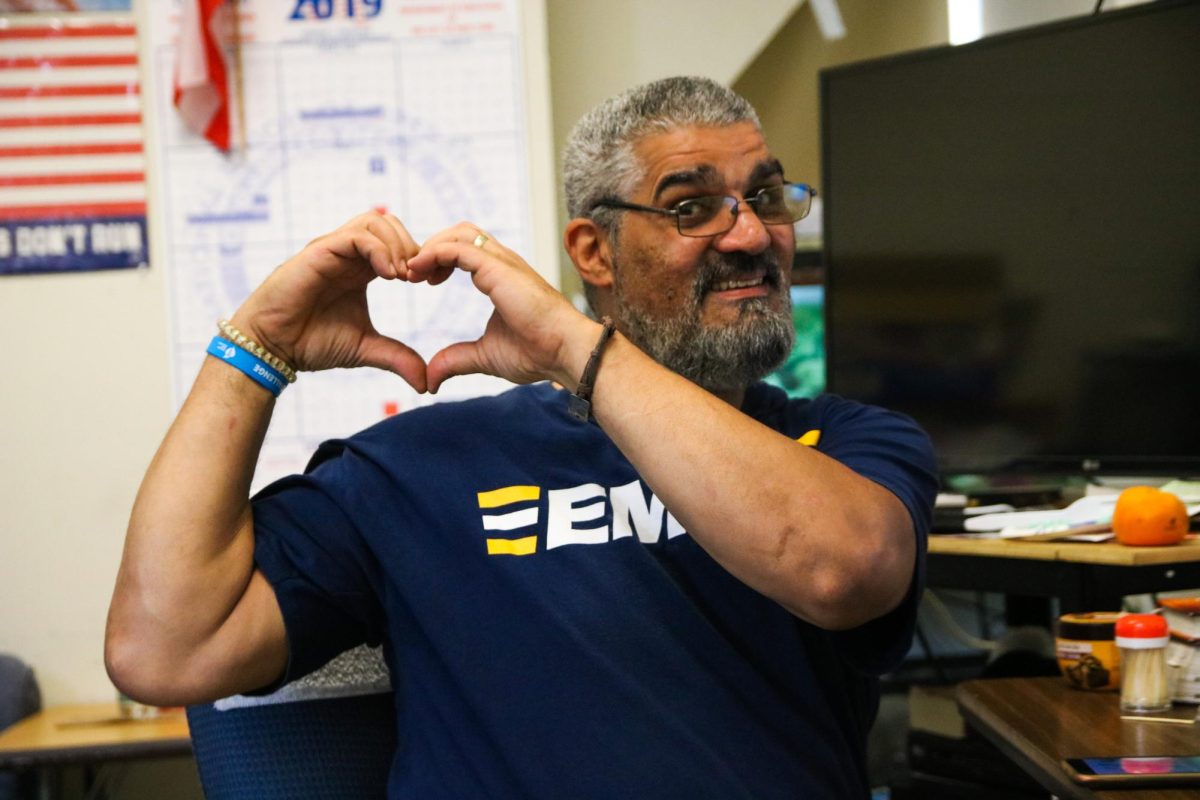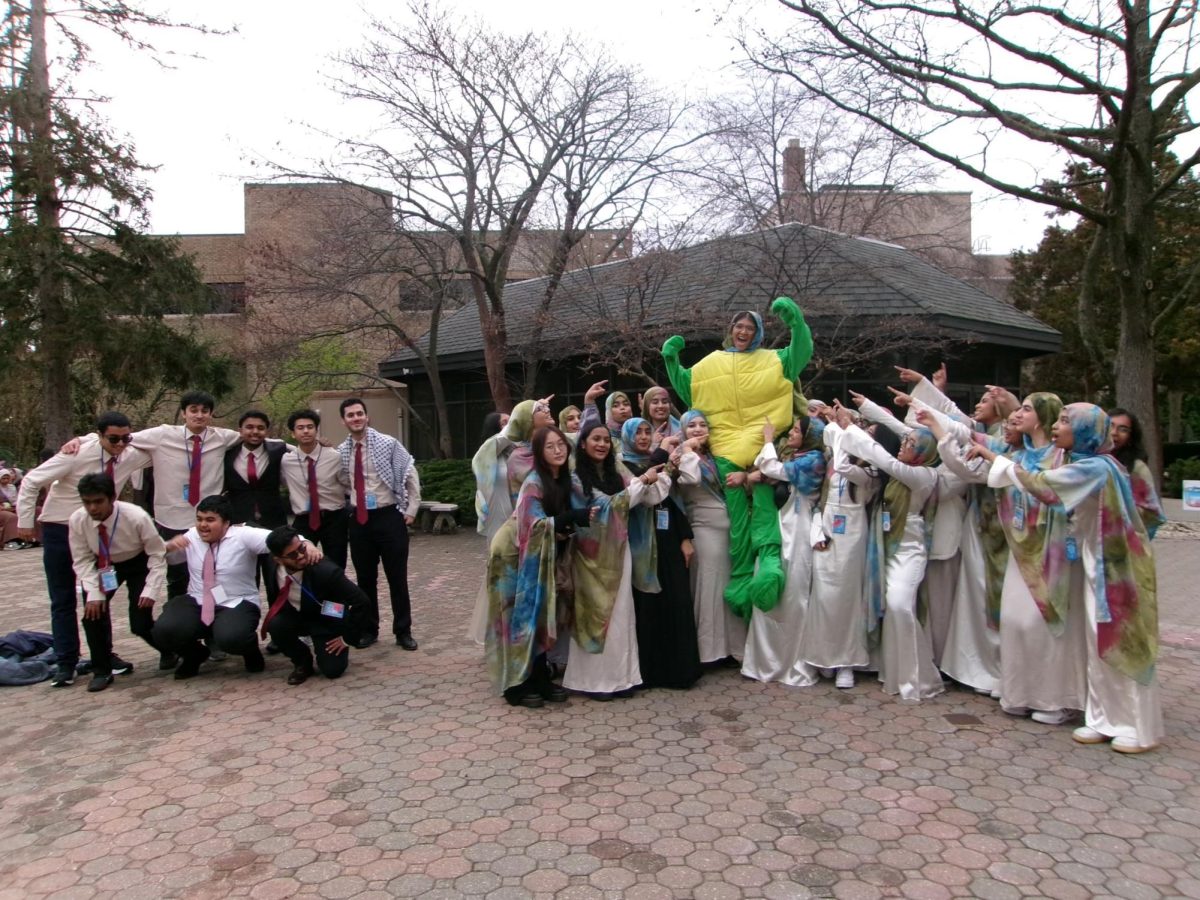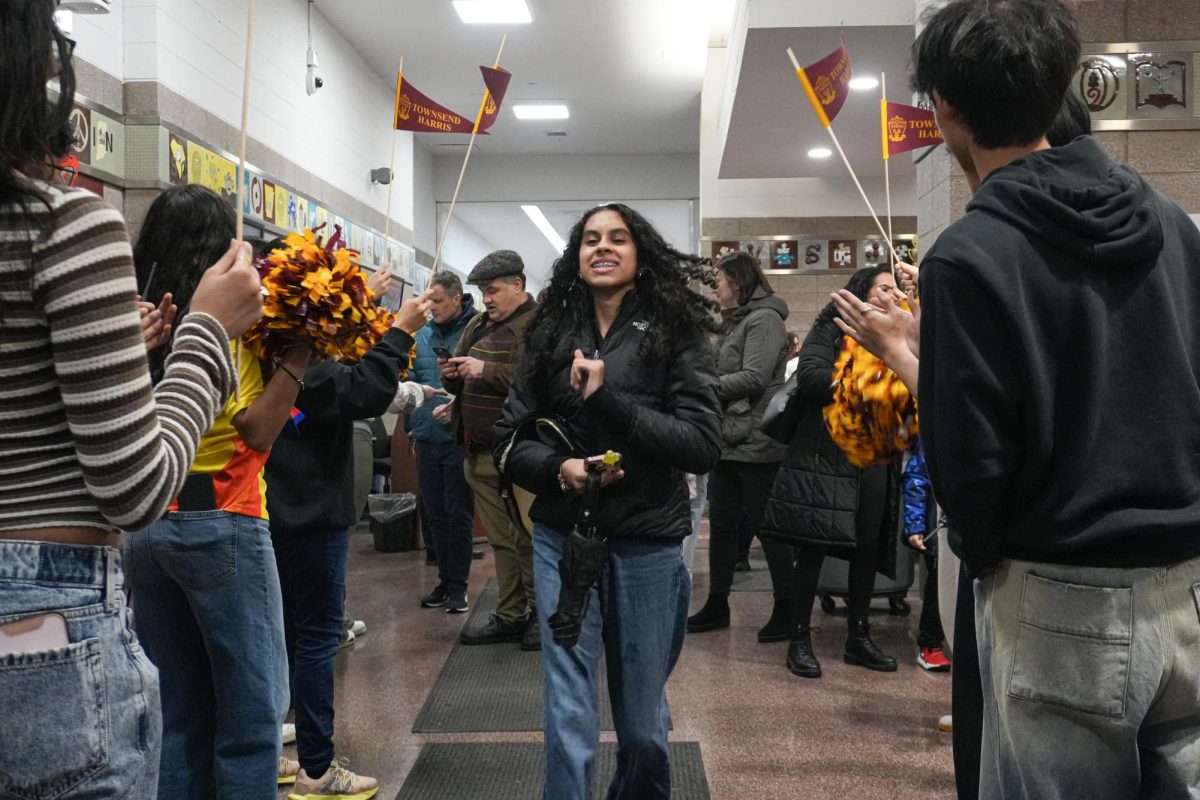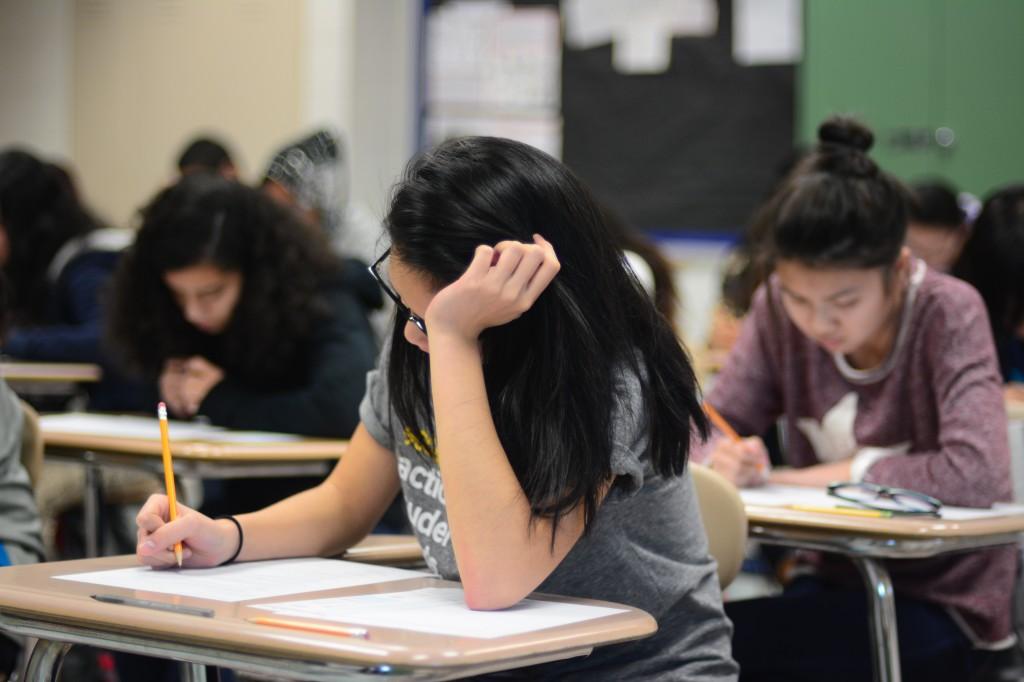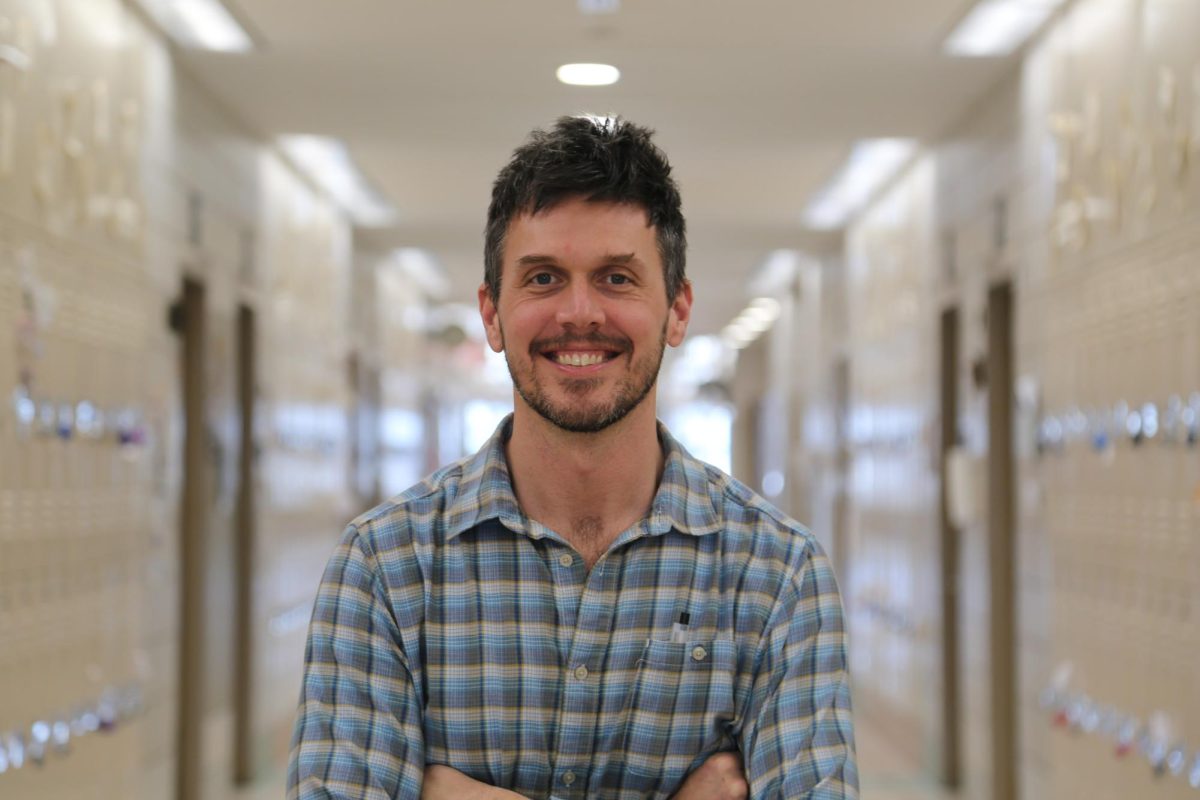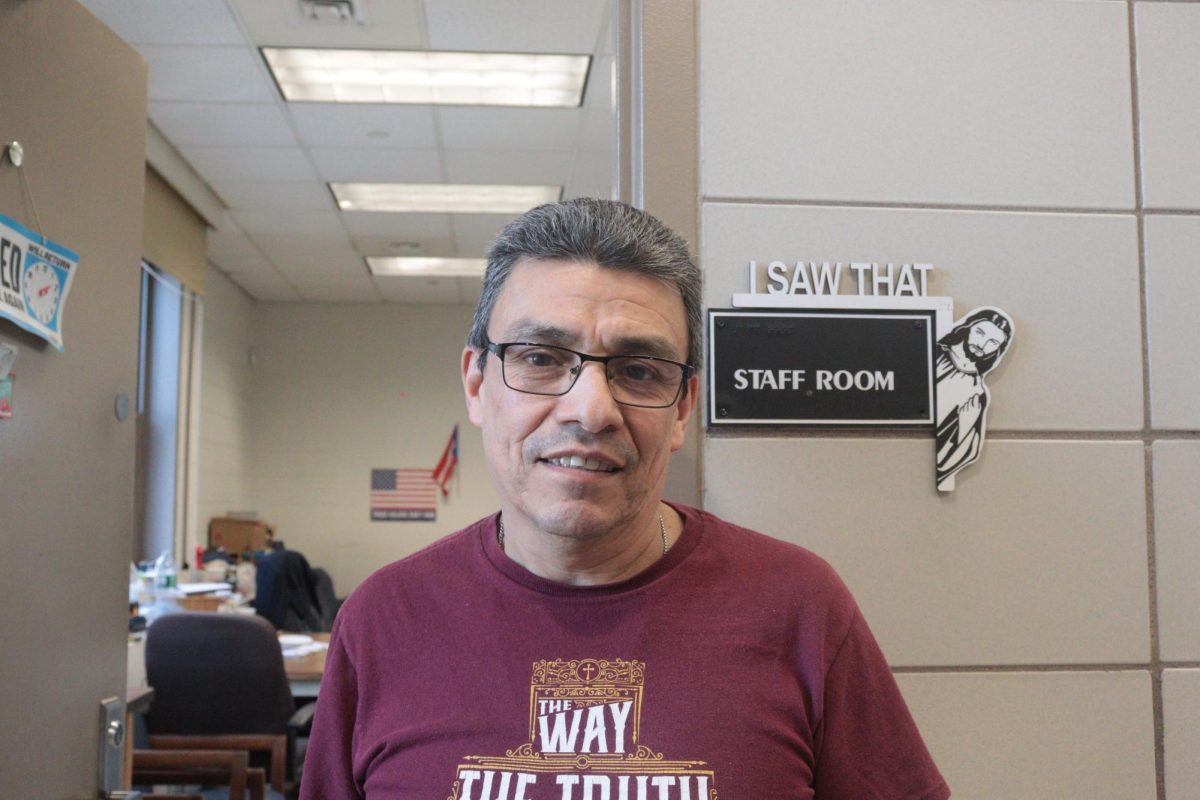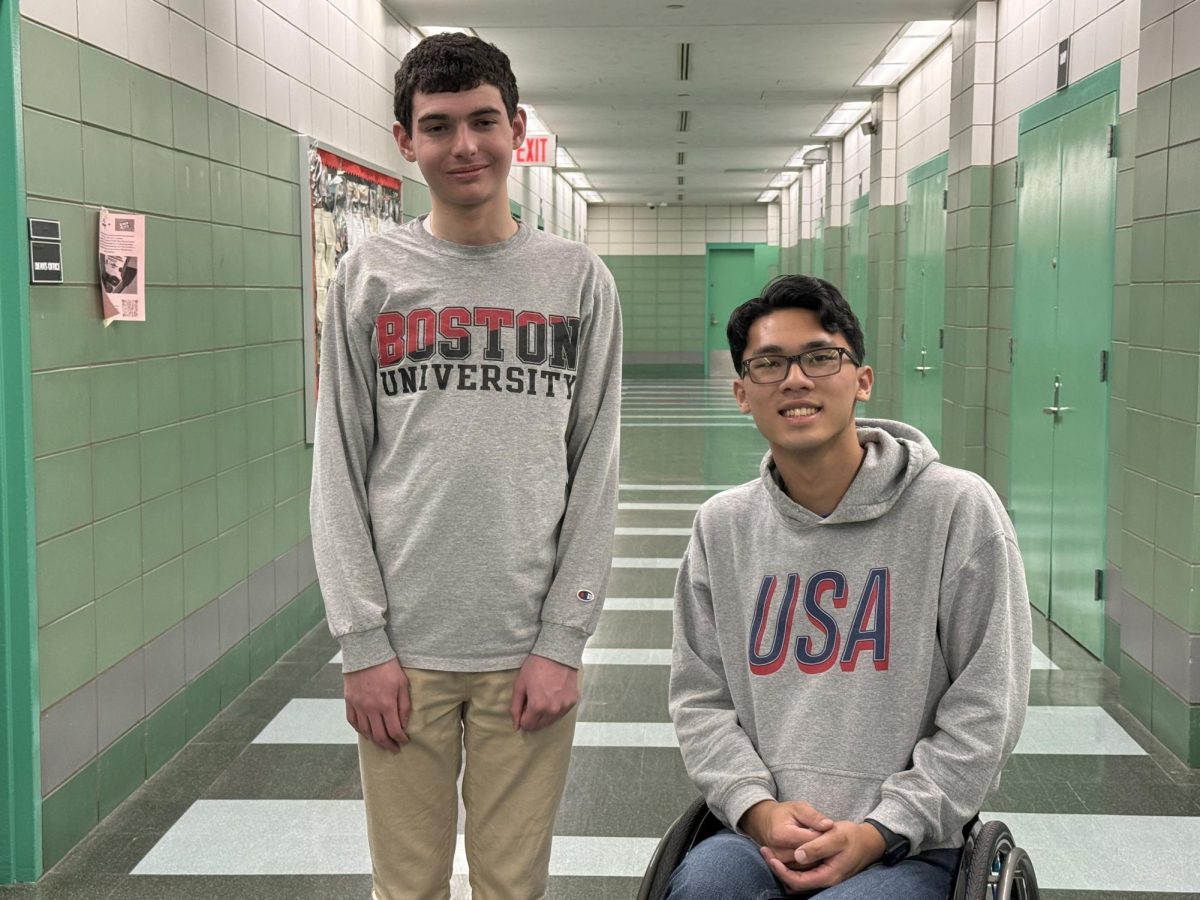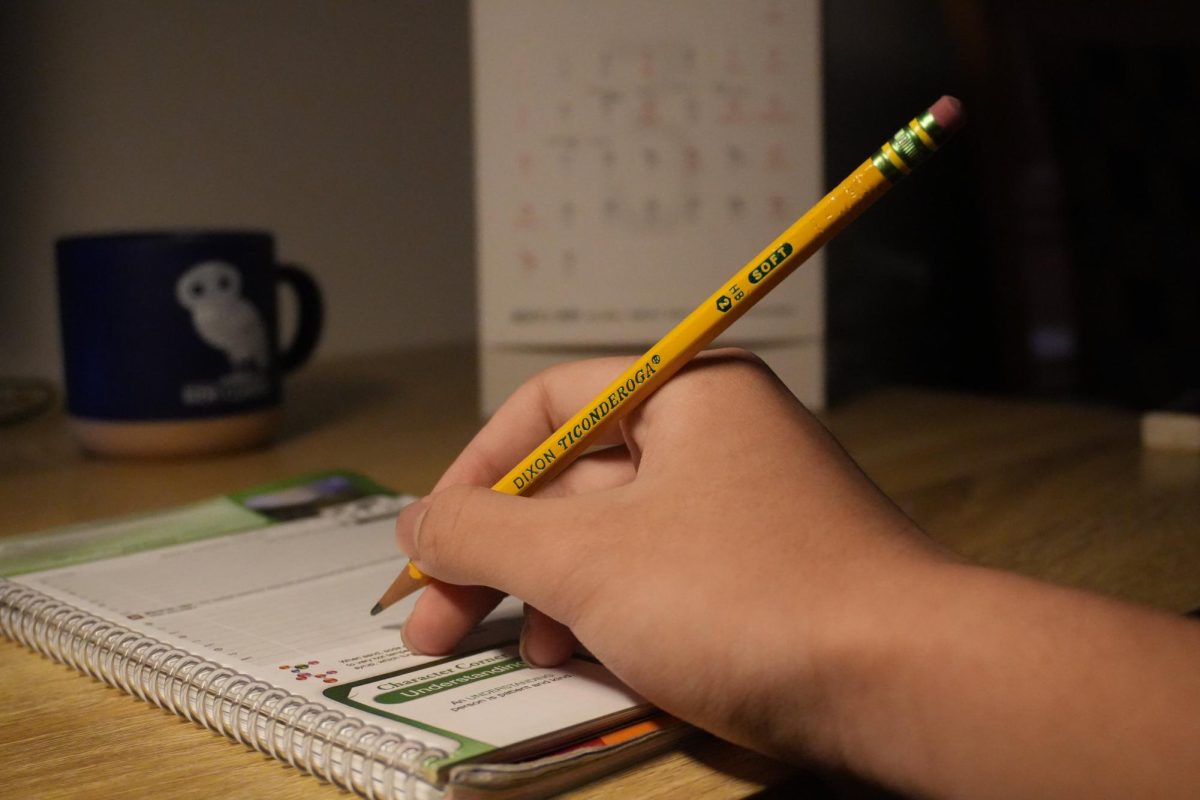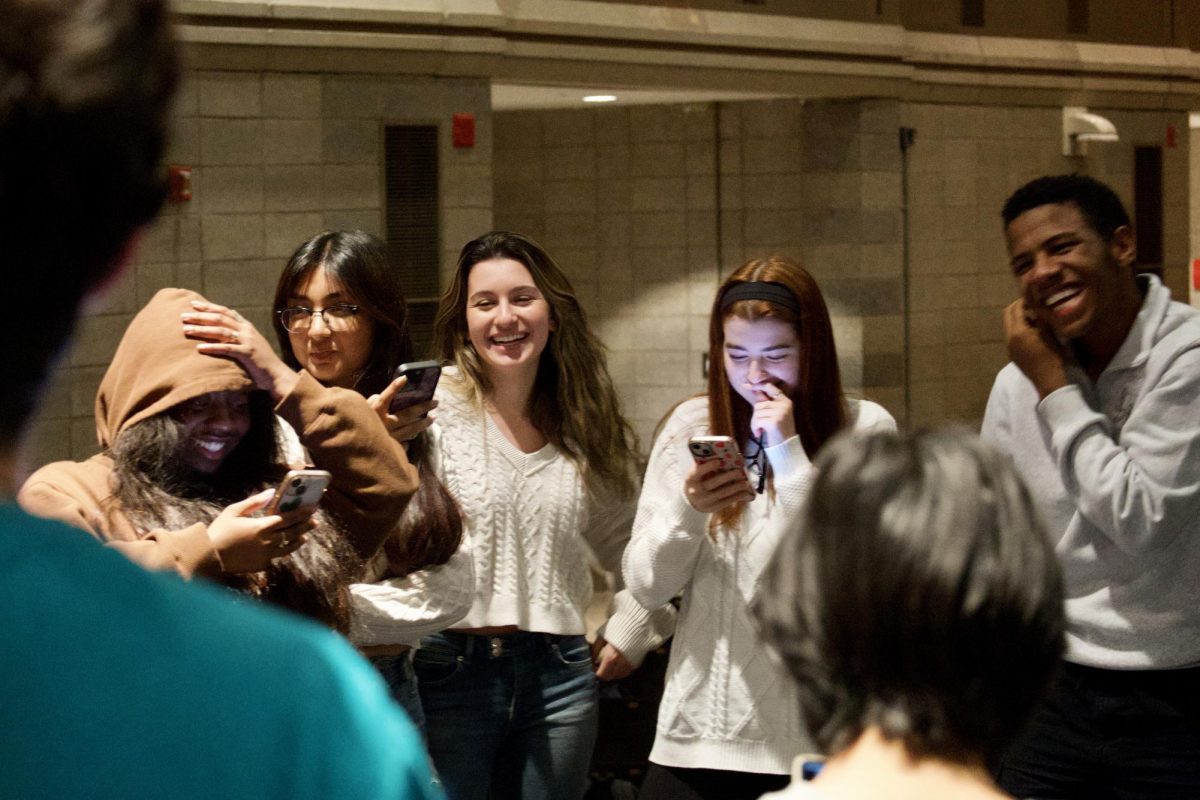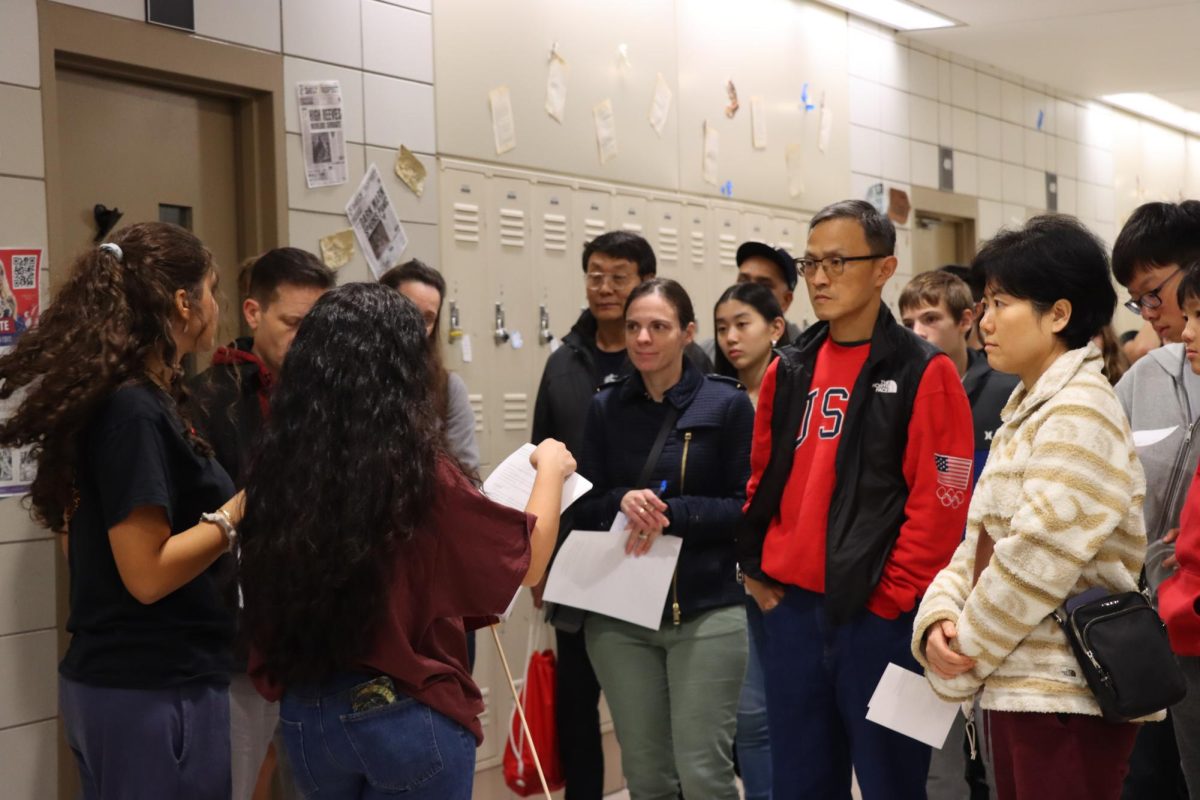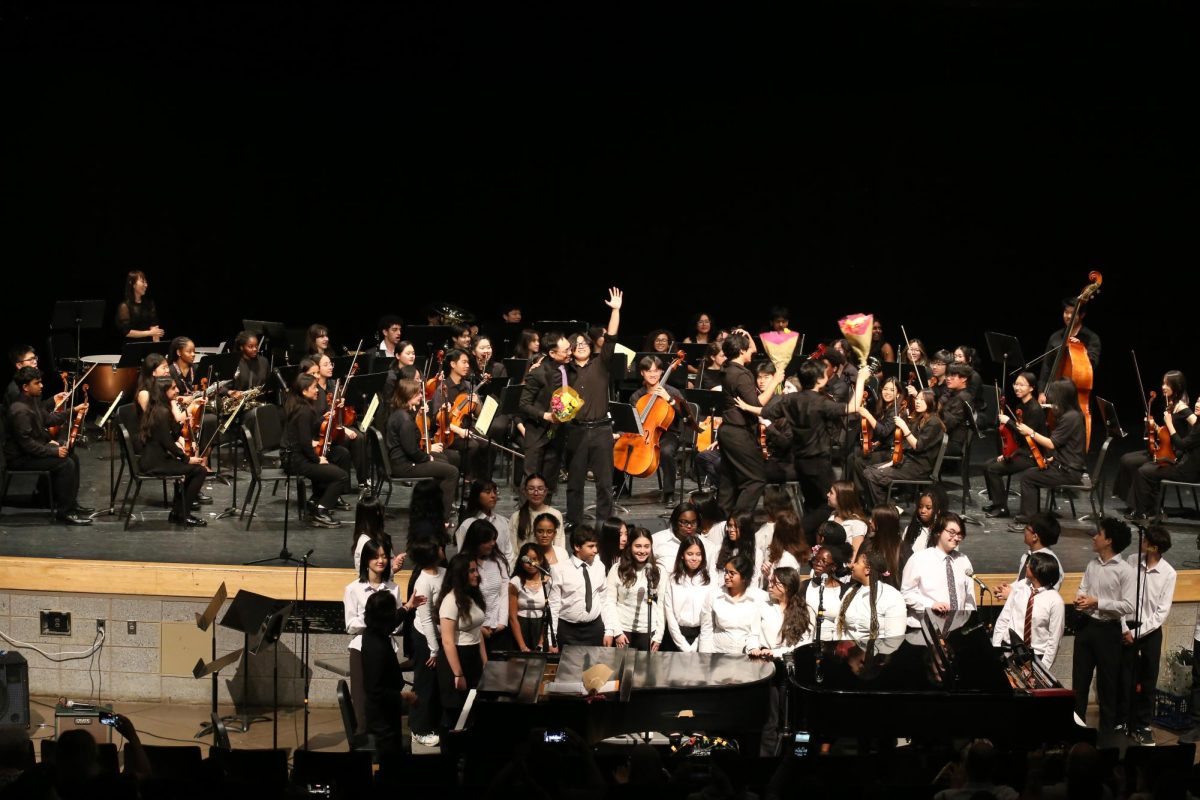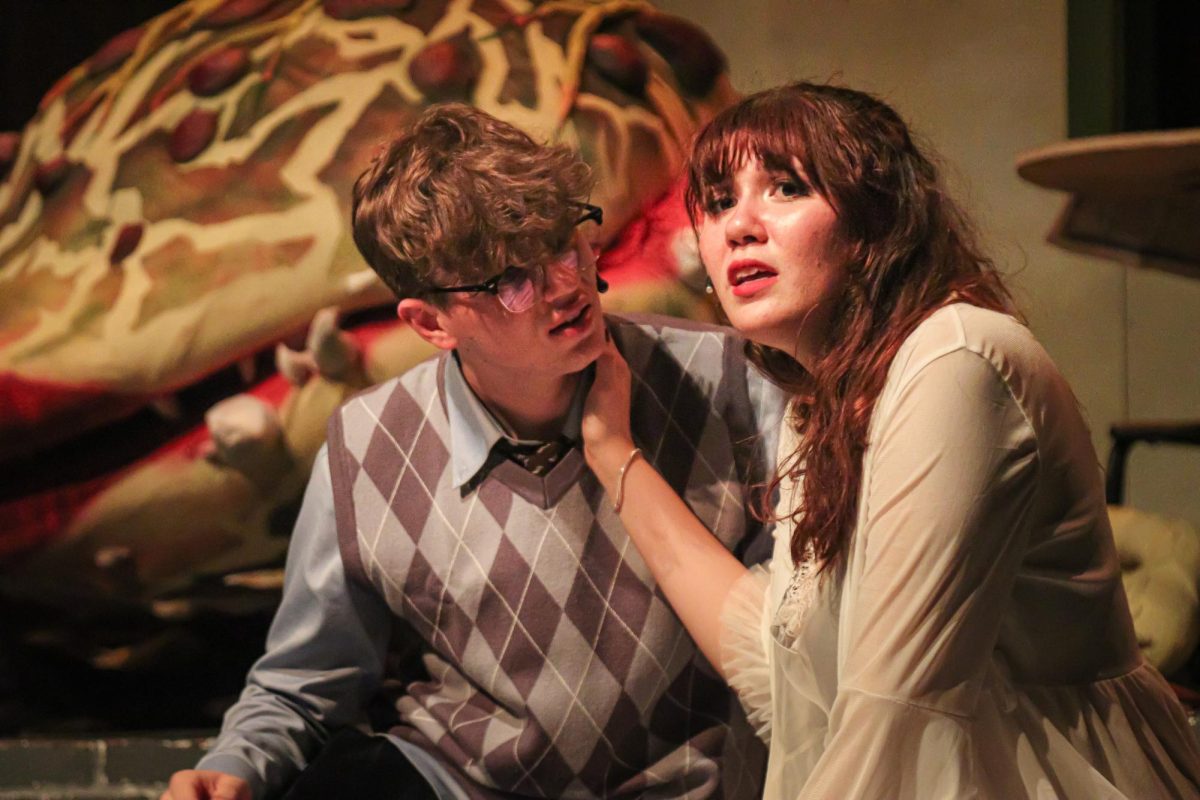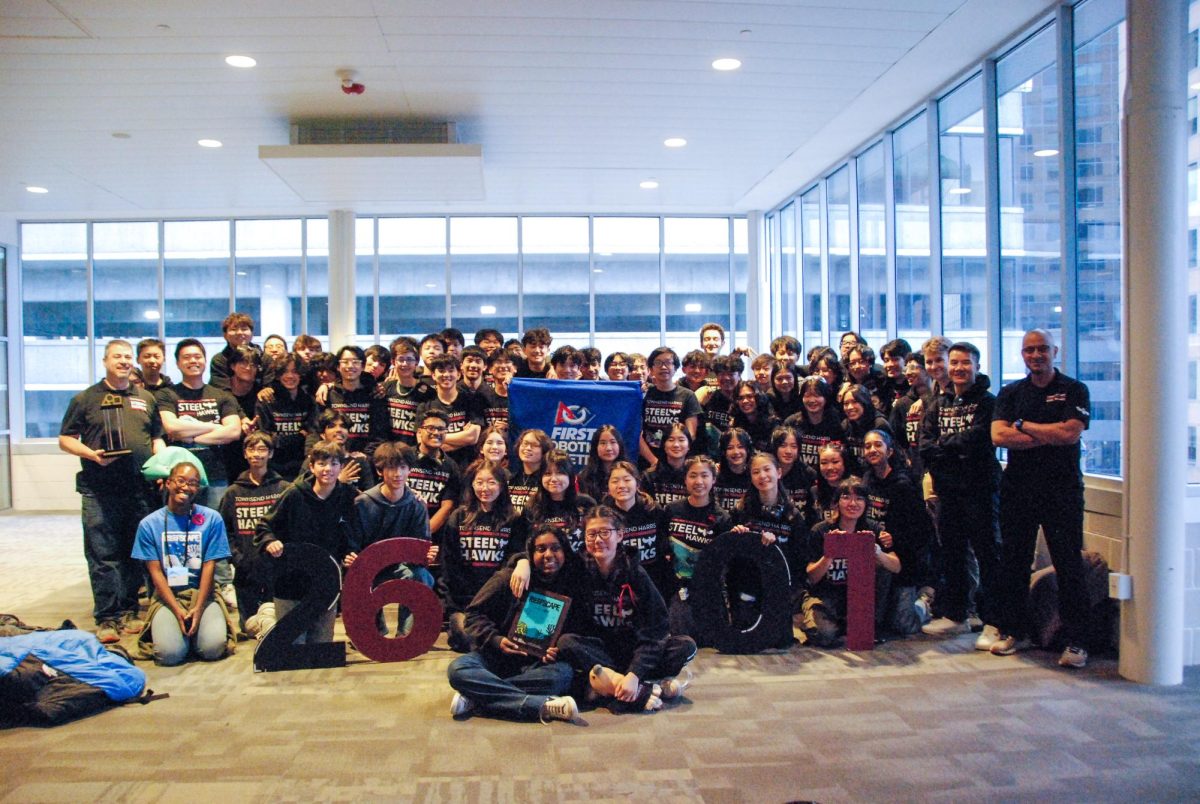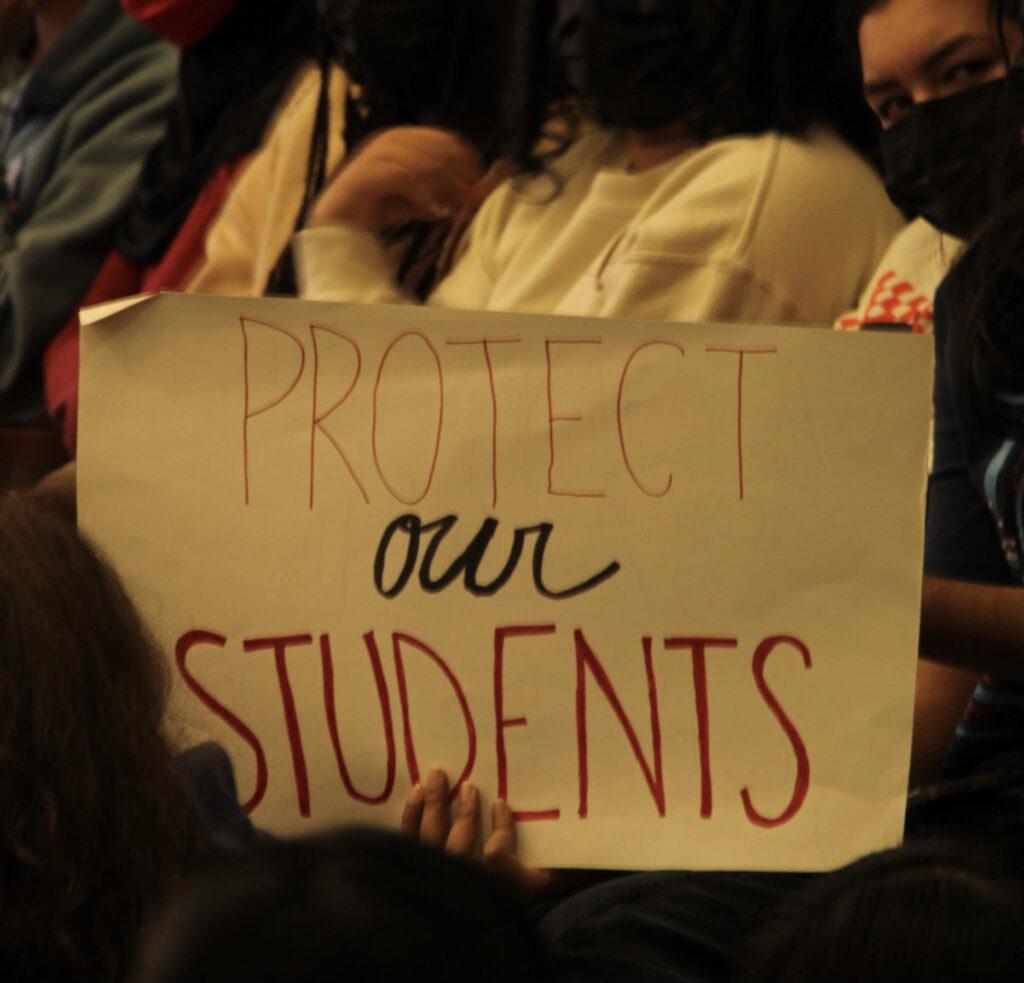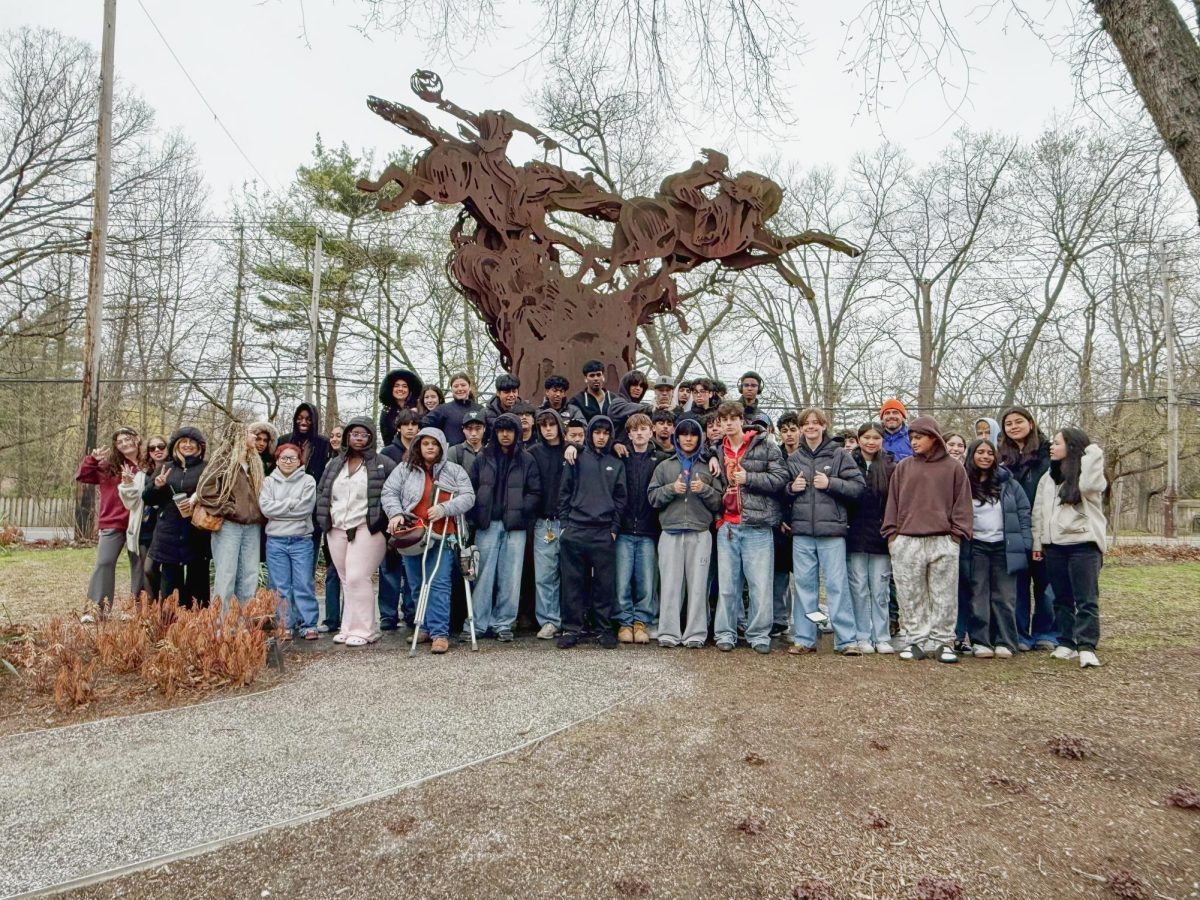
On April 12, representatives from the United Federation of Teachers (UFT) met with Townsend Harris students to discuss student demands to reform how NYC schools handle educator sexual misconduct. At the meeting, the representatives pledged to return to the UFT and share student concerns. Since a prominent topic throughout the conversation was the responsibility of the New York City Department of Education (DOE) to more effectively protect students from educator abuse, The Classic contacted the DOE for comment on the UFT meeting.
In a statement, spokesperson Jenna Lyle announced that the DOE is working on new policies as a result of THHS students speaking up about misconduct. The DOE also told The Classic that it supports reviewing a law that determines how teachers can be fired in New York State. Both represent significant moments in the conversation that began in November after news first broke about a teacher who was returned to THHS after city investigators concluded in a report that he “threatens the well being…[of] students at THHS.” What follows is a look at what makes these recent statements from the DOE significant and how the discussion has changed.
Committing to Work on New Policies
In November, when the New York Post first reported that former THHS teacher Joseph Canzoneri had been returned back to THHS, then DOE spokesperson Katie O’Hanlon told The Post that “[Mr. Canzoneri] was not permitted to set foot in a classroom once these deeply disturbing [sexual misconduct] allegations came to light, and is not working with any students or in any classrooms.”
The Classic subsequently reported that despite the DOE statement to the Post, children were in fact in Canzoneri’s presence multiple times after he was returned to the THHS building.
In response, Ms. O’Hanlon told The Classic that Canzoneri “will never be permitted back in Townsend Harris again,” but the statement did not offer any indication of the fundamental problem behind the story: if the DOE could assure The Classic in November that Mr. Canzoneri would never return to the school, why had he been returned at all? Why hadn’t he been removed prior to press inquiries?
In January, a new mayor and new chancellor took over, and a shift in DOE language around this topic started to become clear.
That month, THHS protestors held a phone bank calling upon the UFT and DOE to acknowledge the list of demands they presented at their protest in November. The Classic asked the DOE for comment and current DOE Press Secretary Nathaniel Styer shared a DOE interest in listening to calls for change: “We applaud these young people [who] are raising their voices on this important issue and we will review their proposals.”
Now, in April, the DOE stated clearly what was not said in November: Mr. Canzoneri “should not have been placed back in a school.”
Moreover, Ms. Lyle said that the DOE is “working on new policies to ensure this doesn’t happen again” and credited students at THHS with the decision “because they raised their voice.”
After calls for change that Townsend Harris students shared at a sit-in five months ago, the largest school district in the nation has committed to working on new policies to protect future students at THHS and around the city.
Asked to comment on the DOE’s statement, Principal Brian Condon told The Classic, “I am encouraged by the statement the DOE has made, and I too am proud of the efforts of our students in raising and reporting on this important issue of student safety. I have faith that the new administration will make significant reforms and will ensure that the voices of school communities are heard regarding matters of this nature.”
Reviewing 3020-a
Perhaps even more significant is the DOE confirming to The Classic that it supports a review of education law 3020-a to ensure that all misconduct can be heard by the hearing officers in charge of making final decisions on termination.
The role of 3020-a in Mr. Canzoneri’s return became a point of discussion days after coverage broke.
Mr. Condon drew attention to the law at the sit-in on November 23. Addressing student protestors, Mr. Condon said, “The law 3020-a that governs the termination of tenured pedagogues, which includes principals, teachers, assistant principals, anyone who takes custodial care over children, does need to be changed, and I am fully supportive of this action.”
3020-a is the labor protection law that dictates how educator disciplinary proceedings are carried out. The law has been described in the press for years as being overly expensive to school districts and unnecessarily long. The UFT says it ensures educators retain their constitutional rights when accused of fireable offenses.
However, when The New York Post reported that Canzoneri’s case was dismissed by the 3020-a hearing officer due to lack of testimony, despite a city report that detailed graphic accusations of misconduct, students came to believe that the law had to be flawed.
Following coverage of these events, state senator Philip Boyle of Babylon reached out to The Classic on Facebook, sharing that the Babylon school district was undergoing a similar situation surrounding several allegations of educator sexual misconduct.
Senator Boyle then spoke with The Classic, discussing the situation both THHS and Babylon shared along with his proposals for legislative reform on how cases of educator sexal misconduct should be handled at the state level. The conversation repeatedly circled back to 3020-a and the potential need to alter it or add additional legislative safeguards to address educator misconduct.
On the topic of 3020a, he stated, “I’ve been in the legislature now for 25 years and I’ve seen several versions of the 3020a law to protect teachers. Teachers are due rights. There’s no question about it. They should have due process. But sometimes these rules go so far in protecting the teacher, we see instances where they have sexual misconduct towards a student and they’re taken out of the room but still come back, as you saw at your school.”
Student protestors have also repeatedly pointed to procedures that require former student victims to testify in close proximity to the teacher accused. Alyssa Figueroa, one of the organizers of the protest, has suggested that the conditions surrounding student testimony can potentially dissuade students from testifying.
At the UFT meeting, Alyssa said “these hearings take place in small [spaces]…somewhere where there’s not much space and support for these victims; it can be very traumatizing, which impacts whether or not they come forward to verify these testimonies that are found in [the] investigation or just to testify in the first place.”
“When we’re imagining a solution to the issue that we’re facing, we’re not imagining a complete overhaul of 3020a,” said Isabella Sicilian, another organizer of the protest. They’ve called for reforms that address how victim testimony is presented, a change to a rule that says that non-criminal allegations older than three years are dismissed, and added attention to grooming.
In the student protesters’ meeting with the UFT on April 12, the UFT representatives suggested that 3020-a itself was less of a problem than the protocols the DOE has for acting on the decisions made after the process. “I really strongly believe that the Department of Education needs to have a better protocol for reviewing 3020-a decisions and being clear [on] who they’re returning to a school,” UFT Queens Borough Office Representative Amy Arundell said. “I think that is something we push for, that there are ways that the system could have done more or continue to do more to protect students and protect employees.”
When the DOE told The Classic that, in regard to 3020-a, they support the review of this statute to ensure all misconduct may be heard by a hearing officer, it appeared that student voices did not just inspire the education department to work on new policies, but to also share support for some of the most significant calls for change made by students at Townsend Harris.
On the same day that it broke the story about Mr. Canzoneri, The New York Post ran an op-ed by Classic Editors-in-Chief Ryan Eng, Julia Maciejak, and Jasmine Palma. Calling DOE policies “deeply broken,” they wrote “Our newspaper will never let this story go — not until we receive an answer to the question we’ll ask those in power: What will you do to ensure our students are safe?”
These developments represent a step in the right direction towards answering that question, as does the UFT’s willingness to sit down with Townsend Harris protestors and journalists for more than three and a half hours to hear out concerns and speak on the record about these topics.
This spring, Ryan, Julia, and Jasmine have shared with us all they have learned in reporting on this story in their time. We are the new editors-in-chief of The Classic, and we can promise that we will follow up with the DOE to find out what policies they plan to implement. We will also follow up with the UFT to find out how the discussions they hold go.
As the outgoing editors graduate, it’s now our turn to say with certainty: The Classic will never let this story go.

